Featured
 A DeSantis Speech Too Dangerous to Teach in Florida. By Adam Serwer / The Atlantic
A DeSantis Speech Too Dangerous to Teach in Florida. By Adam Serwer / The Atlantic
The governor championed rules that bar frank discussions of racist violence—like the one he offered in the aftermath of a mass shooting—in the state’s schools.
Florida Governor Ron DeSantis does not often find himself attempting to deliver a unifying message, but in the aftermath of the killing of three Black Floridians by an alleged white supremacist in Jacksonville last week, he tried. “What he did is totally unacceptable in the state of Florida,” DeSantis said during a speech at a vigil for the three victims.
That a Florida governor might have made it illegal for an educator to explain the context of his own speech may sound ridiculous, but these are legal considerations that educators have to take into account when laws ban certain ideas from being discussed. If Florida teachers allowed their students to read DeSantis’s speech, they might ask about the motive for the attack. A teacher who explained that the shooter was motivated by white-supremacist hatred would risk making a white student feel discomfort, “guilt, anguish, or other forms of psychological distress,” as the law itself puts it. Read more
Political / Social
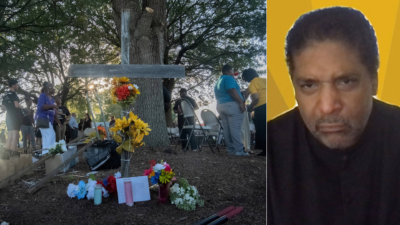 Racist Shootings “Don’t Happen in a Vacuum”: Bishop Barber on DeSantis, Trump & Those Who Spread Hate. By Amy Goodman / Democracy Now
Racist Shootings “Don’t Happen in a Vacuum”: Bishop Barber on DeSantis, Trump & Those Who Spread Hate. By Amy Goodman / Democracy Now
As federal law enforcement opens an investigation into the Jacksonville, Florida, shooting where a white gunman killed three Black people at a Dollar General as a possible hate crime and act of domestic violent extremism, we speak with civil rights leader Bishop William Barber about the increasing number of racist attacks in America fueled by racism. Listen here
Related: How to Treat Right-Wing Violence in the U.S. By Benjamin Wallace-Wells / The New Yorker
Related: Nikki Haley’s emotional plea about racist ‘hate’ takes a wrong turn. By Greg Sargent / Wash Post
 Ex-Leader of Proud Boys Sentenced to 22 Years in Jan. 6 Sedition Case. By Alan Feuer / NYT
Ex-Leader of Proud Boys Sentenced to 22 Years in Jan. 6 Sedition Case. By Alan Feuer / NYT
The prison term for Enrique Tarrio was the most severe penalty handed down so far to any of the more than 1,100 people charged in connection with the Capitol attack.
The penalty imposed on Mr. Tarrio at a three-hour hearing in Federal District Court in Washington was the final sentence to be lodged against the five members of the Proud Boys who were tried on seditious conspiracy charges earlier this year. Three other men in the case — Joseph Biggs, Zachary Rehl and Dominic Pezzola — were each sentenced last week to between 10 and 17 years in prison. Read more
Related: Is Enrique Tarrio Cuban? the Background of the Ex-Proud Boys Chairman. By Cocopwb
 From RICO charges to loyalty pledges: Trump’s transformation of the GOP into a crime mob is complete. By Chauncey Devega / Salon
From RICO charges to loyalty pledges: Trump’s transformation of the GOP into a crime mob is complete. By Chauncey Devega / Salon
The first Republican presidential debate made it clear: MAGA may be a cult — but the GOP is a crime family
Today’s Republican Party is a de facto criminal organization. The crime boss is Donald Trump. Like in other criminal organizations, Trump rules through an inner circle of his closest advisors and lieutenants. Trump the boss also uses threats of violence and intimidation to keep control and to punish his enemies. Read more
Related: Authoritarianism Expert Predicts Why The GOP Will Implode, For Good. By Lee Moran / HuffPost
Related: Is Trump disqualified for 2024? Here’s how we’ll soon find out. By Greg Sargent / Wash Post
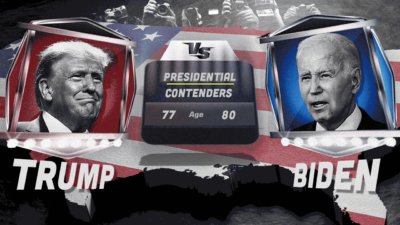 A 2024 Trump-Biden Rematch Isn’t Boring. It’s Something Entirely New. By Paul Blumenthal / HuffPost
A 2024 Trump-Biden Rematch Isn’t Boring. It’s Something Entirely New. By Paul Blumenthal / HuffPost
At this point in the 2024 race, it looks like President Joe Biden is set for a rematch with his predecessor Donald Trump. It’s a matchup that nobody wants to see, at least according to the polls and the pundits.
About 70% of the public says they don’t want either Biden or Trump to run for president, according to one August poll. That is consistent with multiplesurveystaken throughout 2023. National and local newspaper columnists, meanwhile, bemoan another “awful” matchup and the sense of “impending doom” that is sending voters “through the famous five stages of grief.” Read more
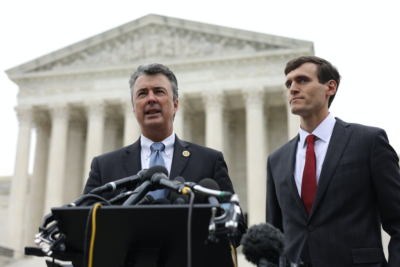 Federal Court Throws Out Alabama Republicans’ Racist Congressional Map. By Tori Otten / The New Republic
Federal Court Throws Out Alabama Republicans’ Racist Congressional Map. By Tori Otten / The New Republic
Alabama Attorney General Steve Marshall speaks to members of the press as Solicitor General Edmund LaCour listens after the oral argument of the Merrill v. Milligan case at the U.S. Supreme Court on October 4, 2022.
The court tossed Alabama Republicans’ map and ordered that a new majority-Black district be created immediately. A federal court on Tuesday struck down Alabama Republicans’ latest discriminatory congressional map and assigned a special master to ensure the state actually creates a second majority-Black district this time around. Read more
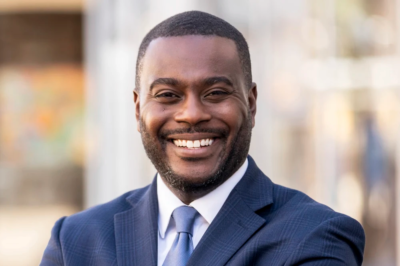 Former White House aide wins crowded Democratic primary in Rhode Island special election. By Alex Seitz-Wald / NBC News
Former White House aide wins crowded Democratic primary in Rhode Island special election. By Alex Seitz-Wald / NBC News
In a sign that President Joe Biden’s brand remains strong with the party’s rank and file, former White House official Gabe Amo won a crowded Democratic primary Tuesday to fill a vacant congressional seat in Rhode Island, The Associated Press projected.
After having defeated 10 other Democrats in the primary, Amo is now almost certain to succeed former Democratic Rep. David Cicilline — who resigned this year to take a job running a large nonprofit group — in representing the deep blue district in Congress. Read more
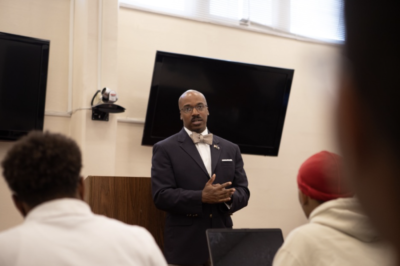 America needs the Men of Morehouse. By Truth Jackson / Maroon Tiger
America needs the Men of Morehouse. By Truth Jackson / Maroon Tiger
Addressing a captivated audience of students from the Atlanta University Center, the U.S. Ambassador to the Republic of South Africa delivered an impassioned address at Morehouse College on Monday. Ambassador Reuben E. Brigety II, Ph.D. ignited a fervent call to action for the young men of this historic institution.
Brigety explained how, through the practice of democracy: you can serve America, shape history, and stand with your ancestors. Beckoning students to serve America’s diplomacy, he urged the young men of Morehouse to recognize their pivotal role in shaping America’s engagement with the world. He emphasized the unique perspective that individuals of color can offer in international spheres of leadership, noting that diversity of thought is essential for addressing the world’s ever-evolving challenges. “I firmly believe that there is no scenario in which our nation’s interests and our interests as individual citizens are served by an absence of American leadership,” Brigety said. Read more
Related: Biden Has ‘Full Confidence’ in Reuben Brigety to South Africa. By Jimmy Quinn / National Review
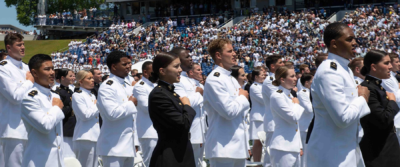 Military Academies Retain Affirmative Action in Admissions. By Lois Elfman / Diverse Issues in Higher Ed
Military Academies Retain Affirmative Action in Admissions. By Lois Elfman / Diverse Issues in Higher Ed
The U.S. Supreme Court decision rejecting race conscious admissions at colleges and universities includes an exemption for military service academies.
Although a challenge to the exemption is expected, the justices who struck down affirmative action in admissions noted that military academies have “potentially distinct interests” when it comes to promoting racial diversity. Thirty-five former military leaders filed a friend-of-the-court brief that referenced the national security interests at stake in sustaining the longstanding admissions policy. Read more
Related: Behind the lines of Texas A&M’s diversity war. By Jack Stripling / Wash Post
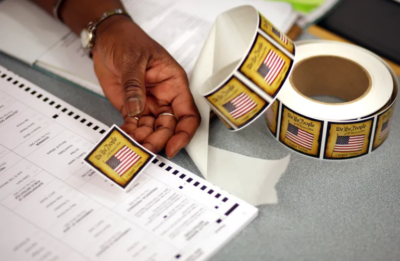 The Voter ID Battle Returns to North Carolina. By Brandon Tensley / Capital B
The Voter ID Battle Returns to North Carolina. By Brandon Tensley / Capital B
With the restoration of a photo ID law that had previously been ruled racially discriminatory, advocates are working overtime to prepare Black communities.
GOP proponents of such restrictive measures — which are being enacted in states including Florida and Ohio — contend that they strengthen election security. However, since there’s no evidence of widespread voter fraud in North Carolina or anywhere else in the country, civil rights advocates insist that these actions are part of an attempt to shrink the franchise for Black Americans. Read more
Ethics / Morality / Religion
 Elon Musk and the Idea that Jews Are to Blame for Anti-Semitism. By Yair Rosenberg / The Atlantic
Elon Musk and the Idea that Jews Are to Blame for Anti-Semitism. By Yair Rosenberg / The Atlantic
Elon Musk’s conceit that Jews cause themselves to be persecuted is as old as anti-Jewish bigotry itself.
For most people, Labor Day weekend was a time for rest and relaxation with friends and family. But for Elon Musk and countless users on Twitter, it was an opportunity to denounce a Jewish organization as the source of their sorrows. Over the past several days, hundreds of thousands of posts on X, the site formerly known as Twitter, have assailed the Anti-Defamation League, the premier Jewish civil-rights organization, under the hashtag #BanTheADL. Read more
 The Lord’s Supper Is a Multiethnic Love Feast. By Jamaal E. Williams and Timothy Paul Jones / Christianity Today
The Lord’s Supper Is a Multiethnic Love Feast. By Jamaal E. Williams and Timothy Paul Jones / Christianity Today
Why our church emphasizes a meal where all are welcome.
Share a monthly agape meal with family and friends whose backgrounds are different from your own. Intentionally pursue relationships with people who aren’t like you. Don’t make your discussions about differences in worldviews or politics. Instead, seek to be learners. Approach the feast with joy and curiosity. People are amazing, like galaxies waiting to be explored. Listen to one another’s stories. Laugh at yourselves when questions turn out to be more awkward than you intended. Read more
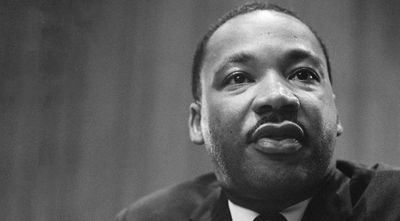 Sharing in Martin Luther King Jr.’s Dream Now. A Conversation with Matt Daniels. By Russell Moore / Christianity Today Podcast
Sharing in Martin Luther King Jr.’s Dream Now. A Conversation with Matt Daniels. By Russell Moore / Christianity Today Podcast
This episode of The Russell Moore Show features professor Matthew Daniels. A global human rights activist and founder of the nonprofit organization Good of All, Daniels is half of the team that created Share the Dream, a Bible study based on the life, teachings, and biblical principles of King.
This discussion considers countercultural engagement, social progress, and civil rights. Daniels and Moore talk about King’s legacy, the current state of racial divides in the church, and how the history of polarization influences where we are today. Their conversation covers online extremism, evangelical emphases on personal piety over communal justice, and what obedience to Christ looks like in practical terms. Read more and Listen here
Historical / Cultural
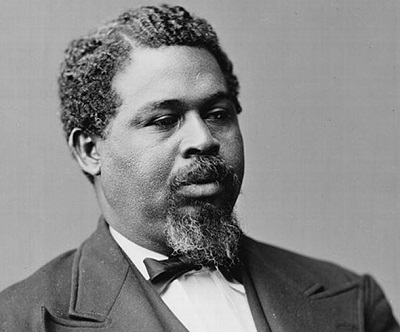 Robert Smalls and Reconstruction Politics. By Karen Cook Bell / AAIHS
Robert Smalls and Reconstruction Politics. By Karen Cook Bell / AAIHS
Robert Smalls Nov 3, 1874 Elected – Zinn Education Project
Reconstruction politics shares a political lineage with the 1960s Civil Rights Movement. Both periods sought to fulfill the nation’s mandate that all of its citizens were created equal with inalienable rights, and both periods were thus undergirded by social, political, and economic transformations that produced Black activists who wedded political events with their personal identities. Robert Smalls, a slave, who commandeered the Confederate vessel Planter, and sailed it from Charleston harbor to the Union naval blockade in 1862, represented this form of “personal political salience,” which linked this political event with Smalls’ Reconstruction personal identity. Read more
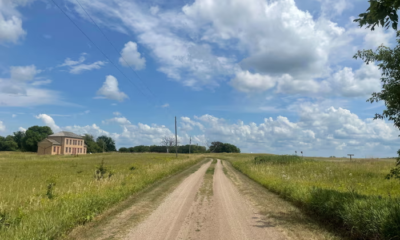 Native tribe to get back land 160 years after largest mass hanging in US history. By AP and The Guardian
Native tribe to get back land 160 years after largest mass hanging in US history. By AP and The Guardian
The Upper Sioux Agency state park near Granite Falls, Minnesota. Photograph: Trisha Ahmed/AP
The state is taking the rare step of transferring the park with a fraught history back to a Dakota tribe, trying to make amends for events that led to a war and the largest mass hanging in US history. Decades of tension exploded into the US-Dakota war of 1862 between settler-colonists and a faction of Dakota people, according to the Minnesota Historical Society. After the US won the war, the government hanged more people than in any other execution in the nation. A memorial honors the 38 Dakota men killed in Mankato, 110 miles (177km) from the park. Read more
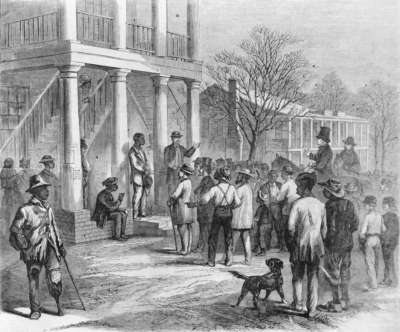 US has a long history of state lawmakers silencing elected Black officials and taking power from their constituents. By Rodney Coates / The Conversation
US has a long history of state lawmakers silencing elected Black officials and taking power from their constituents. By Rodney Coates / The Conversation
As a sociologist who studies historical issues related to race, gender and social justice, I have closely followed these moves by the states. Throughout U.S. history, I see three main periods of legislative disenfranchisement in which legislative bodies have voted to expel members. These events have been shown to be a form of “white backlash” working to keep Black officeholders out of power and their constituents powerless without representation: Reconstruction and legislative disenfranchisement, The civil rights era and Black Lives Matter movement. Read more
 How a Virginia College Expanded by Uprooting a Black Neighborhood. By Brandi Kellam and Louis Hansen / Propublica
How a Virginia College Expanded by Uprooting a Black Neighborhood. By Brandi Kellam and Louis Hansen / Propublica
Sixty-plus years ago, the white leaders of Newport News, Virginia, seized the core of a thriving Black community to build a college. The school has been gobbling up the remaining houses ever since.
Aware that more Black families would be moving to the area, the Newport News City Council wielded its most powerful weapon: eminent domain, the government’s right to forcibly purchase private property for public use. In 1961, it seized the core of the Shoe Lane area, including the Johnsons’ farmland, for a new public two-year college — a branch of the Colleges of William and Mary system. Read more
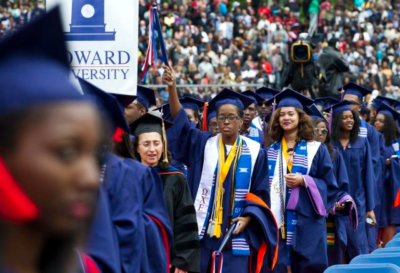 The untold story of how Howard University came to be known as ‘The Mecca.’ By Jamal Abdul-Allm / The Conversation
The untold story of how Howard University came to be known as ‘The Mecca.’ By Jamal Abdul-Allm / The Conversation
If you ask just about anyone at Howard University what’s the other name for their school, they will readily tell you: “The Mecca.”
Greg Carr, an associate professor of Africana Studies at Howard University, told the newspaper that the term “emerged after the Civil Rights Movement.”“In the wake of the death of Malcolm X and in the spirit of the Black Power movement, students began to informally refer to the campus as ‘The Mecca of black education,’” wrote Bianca Ladipo. It seemed intriguing to me as a longtime admirer of Malcolm X – and also as one who made the pilgrimage to the original Mecca in Saudi Arabia, as Malcolm famously did in 1964. Read more
 Why dream hampton Won’t Give Up on Hip-Hop. By Spencer Kornhaber / The Atlantic
Why dream hampton Won’t Give Up on Hip-Hop. By Spencer Kornhaber / The Atlantic
The writer dream hampton thinks hip-hop is broken. But she can’t stop trying to fix it.
One sunny day in 1995, the Notorious B.I.G. sat in the passenger seat of a black Mercedes-Benz, smoking joints and talking shit. From behind the camera, hampton asked whether he intended to consume their entire bag of weed. Annoyed at the interruption, Biggie mocked her question. Hampton’s voice turned sharp. “Why are you going at me today?” she asked. “What’s the problem? Do we need to do something before we go on the road? Take this outside?” The video cut to static. Read more
Related: Tweet Boogie Helped Shape Hip-Hop Culture From The Dance Floor. By Shannon S. Thomas / HuffPost
Sports
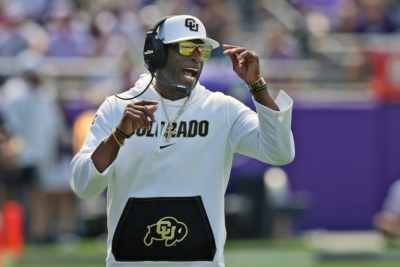 Authentically himself, Deion Sanders reflects a truer image of college football. By Jerry Brewer / Wash Post
Authentically himself, Deion Sanders reflects a truer image of college football. By Jerry Brewer / Wash Post
Deion Sanders is the perfect disrupter for this moment in college football. The sport’s establishment has underestimated him in ways that his prolific mouth cannot articulate. Here he comes, loud and swaggering, armed with the coaching acuity and nimble leadership to navigate a wild time.
His antics, which included some “Do you believe now?” heckling of a reporter, obstructed appreciation of the stunning victory. Sanders went all-in with the disrespect card because playing the underdog isn’t his style. He ratcheted up the arrogance because, after Sanders has spent almost 40 years in the spotlight, does anyone expect anything less? Read more
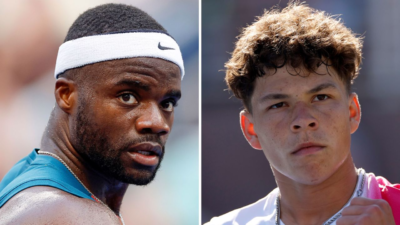 Ben Shelton tops Frances Tiafoe in the first US Open quarterfinal between two Black men. By AP and The Grio
Ben Shelton tops Frances Tiafoe in the first US Open quarterfinal between two Black men. By AP and The Grio
The matchup was the first major quarterfinal between two African-American men in the Open era, which dates to 1968.
Ben Shelton is still just 20, still new to this whole professional tennis thing. He is equipped with a tremendously good serve, but don’t think he can’t come through in other ways when it matters the most. On a muggy night in which, yes, he hit 14 aces but also hit 11 double-faults, Shelton used one blink-and-you-missed-it booming return to save a set point in the pivotal tiebreaker and reached his first Grand Slam semifinal by edging Frances Tiafoe 6-2, 3-6, 7-6 (7), 6-2 at the U.S. Open in a back-and-forth contest filled with huge hitting by both. Read more
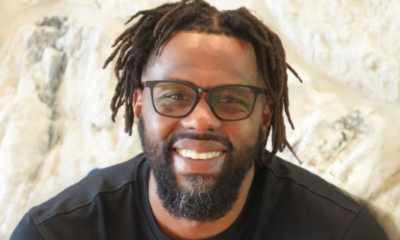 Black Players for Change’s Allen Hopkins: ‘We can eradicate racism in sport.’ By Matthew Hall / The Guardian
Black Players for Change’s Allen Hopkins: ‘We can eradicate racism in sport.’ By Matthew Hall / The Guardian
Athletes, coaches, and staff working within Major League Soccer have joined forces to change the game from within.
A framed photograph of the Cleveland Summit overlooks the desk of Allen Hopkins as he logs on at work each day. It records the 1967 meeting between Black athletes – Muhammad Ali, Bill Russell, and Kareem Abdul-Jabbar among them – and politicians to consider and eventually support Ali’s refusal to be drafted into the Vietnam war. That support sent a message – the fight for civil rights is a collective effort. Read more
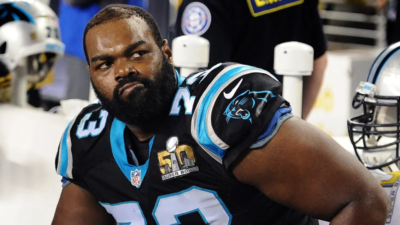 The Blind Side: Propagating The Myth Of Post-Racial America Through Film. By Gerald Nesmith / Essence
The Blind Side: Propagating The Myth Of Post-Racial America Through Film. By Gerald Nesmith / Essence
The film is a retelling of the story of Michael Oher, which was believed to be true at the time. A young, homeless Black kid, after being taken in by an affluent white family named the Tuohys, finds success playing football at their private Christian high school and goes on to be drafted in the first round of the 2009 NFL Draft.
Despite this film ostensibly being the “Michael Oher Story,” it’s clear that Oher isn’t the main character. His journey is experienced through a muddled white lens. In the film, as Oher spots his estranged brother working at a restaurant where he and the Tuohys are dining, we, the audience, encounter this scene not intimately, but as observers, mirroring the Tuohys’. The viewpoint that the film had might’ve been illustrating the limited knowledge the Tuohys had about Michael; nonetheless, this approach still places their vantage point as paramount in a situation that should inherently hold emotional weight for Michael. Read more
Site information
Articles appearing in the Digest are archived on our home page. And at the top of this page register your email to receive notification of new editions of Race Inquiry Digest.
Click here for earlier Digests. The site is searchable by name or topic. See “search” at the top of this page.
About Race Inquiry and Race Inquiry Digest. The Digest is published on Mondays and Thursdays.
Use the customized buttons below to share the Digest in an email, or post to your Facebook, Linkedin or Twitter accounts.